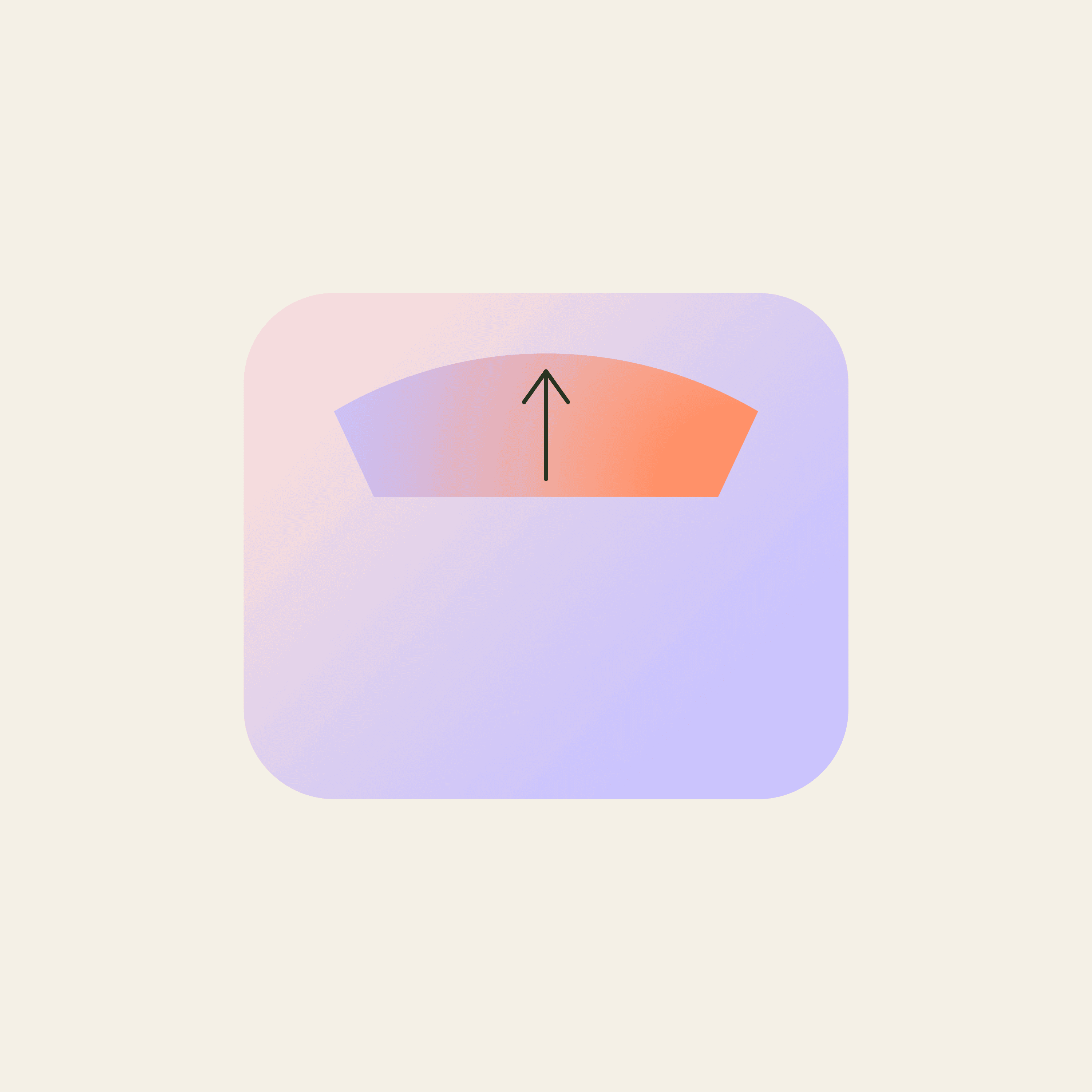That vague "I don't feel like myself" feeling comes first
Often the first sign of fluctuating oestrogen levels is that vague feeling of "I just don't feel like myself" you can't quite put your finger on what's wrong, but something's off. That's those fluctuating hormones affecting your brain, mood, energy, and sense of wellbeing before the more obvious physical symptoms kick in.
You might feel it as:
- A sense that you're not quite present in your own life
- Like you're watching yourself from the outside
- Brain fog making everything feel harder than it should
- Mood swings that don't match what's actually happening
- Energy levels that have fallen off a cliff
- A general sense of "wrongness" you can't explain
This isn't you going mad. Your brain is packed with oestrogen receptors, particularly in areas that control mood, memory, and how you experience yourself. When oestrogen starts fluctuating, your brain notices first.
We know you're probably worrying whether this could be early-onset dementia, depression, or thyroid problems (and yes, those should be ruled out by a menopause specialist). But for most women, this vague feeling is perimenopause announcing itself.
How many symptoms exist (and how long they actually last)
Here's the thing that nobody tells you: there are over 34 recognised menopause symptoms. Thirty-four. And they don't all show up at once, which is why it can take ages to connect the dots.
About 80-90% of women experience symptoms during menopause. For some people it's mild (lucky you). For a quarter or all women it's completely debilitating.
And the duration? Studies have found that symptoms last on average over 7 years. Seven years. If you started having symptoms at 45, you might still be dealing with them at 52.
Brain and nervous system symptoms
Your brain is where the chaos usually starts. Oestrogen affects neurotransmitters (the chemical messengers in your brain), which is why mood and cognitive changes can be the first things you notice.
Brain fog That fuzzy-headed feeling where you can't think straight. You walk into rooms and forget why you're there. You can't find words. You read the same paragraph three times and retain nothing. Research shows brain fog affects up to 60% of women during perimenopause.
Frustrating doesn't even cover it.
Memory problems Forgetting names, appointments, where you put your keys. Your colleague Sarah's name just... vanishes from your brain, and you've worked with her for four years. This isn't dementia. It's oestrogen's effect on the parts of your brain involved in memory formation.
Mood swings Happy, then furious, then weepy, then fine again. All in the space of an hour. The emotional whiplash is exhausting. Mood changes are one of the most common symptoms, and they're caused by fluctuating hormone levels affecting serotonin and other mood-regulating chemicals.
Anxiety That tight chest, racing thoughts, catastrophising about everything. Some women develop anxiety for the first time in perimenopause. Others find existing anxiety gets significantly worse. And yes, we know you've been Googling every symptom at 3am, convinced something terrible is wrong. That's the anxiety talking.
Depression Not just feeling sad. Proper low mood, loss of interest in things you usually enjoy, feeling hopeless. Depression is more common during perimenopause than at other life stages. If you're feeling this way, talk to a menopause specialist. This is treatable.
Irritability and rage Snapping at people for breathing too loud. Wanting to throw your phone at the wall because it's loading slowly. This isn't you being difficult. Oestrogen affects how your brain regulates emotions, and when levels drop, your patience drops with it.
Difficulty concentrating You can't focus on anything for more than five minutes. Work that used to be easy now takes twice as long. Reading feels impossible. Concentration problems are common and they're linked to those same oestrogen-related brain changes.
Headaches and migraines New headaches, or existing migraines getting worse. Hormone changes can trigger headaches, particularly in the lead-up to your period (when oestrogen drops sharply).
Dizziness Feeling lightheaded or off-balance for no clear reason. Dizziness can happen when hormones affect your blood pressure and inner ear function.
Burning mouth syndrome A burning sensation in your mouth, tongue, or lips. Sounds niche, but it's a thing. And it's miserable.
Temperature regulation symptoms
Hot flushes are the symptom everyone associates with menopause. About 75-85% of women experience them. Your hypothalamus (the part of your brain that controls body temperature) becomes more sensitive when oestrogen drops, so it thinks you're overheating when you're not.
Hot flushes That sudden wave of intense heat spreading through your chest, face, and neck. Your skin goes red. You're sweating. Your heart might race. Hot flushes can last anywhere from 30 seconds to several minutes, and they can happen multiple times a day.
In a meeting. On the Tube. At the supermarket. The timing is never convenient.
Night sweats Hot flushes that happen while you're sleeping, leaving you drenched and needing to change your pyjamas and sheets. Night sweats destroy your sleep quality, which makes every other symptom worse.
Cold flashes The opposite of hot flushes. Sudden chills that make you shiver even when it's warm. Less common than hot flushes, but they happen.
Heart and cardiovascular symptoms
Your heart has oestrogen receptors too, which is why cardiovascular symptoms can appear during menopause.
Heart palpitations Your heart suddenly racing, fluttering, or pounding for no reason. Terrifying if you don't know what's causing it. Palpitations are common during menopause and they're usually harmless (though always worth checking with a menopause specialist to rule out other causes).
High blood pressure Your blood pressure might increase during menopause as oestrogen helps keep blood vessels flexible. When levels drop, blood pressure can rise.
Bones, joints, and muscles symptoms
Oestrogen protects your bones and helps reduce inflammation in joints. When levels drop, you notice.
Joint pain and stiffness Aching joints, particularly in your hands, knees, hips, and shoulders. Worse in the morning. Research shows joint pain affects up to 65% of women during menopause. You're not imagining it, and you're definitely not too young for this.
Muscle aches Your muscles hurt for no clear reason. Muscle pain is linked to oestrogen's role in muscle recovery and inflammation.
Osteoporosis risk You can't feel this one, but oestrogen protects bone density. After menopause, bones become more fragile. Worth discussing with a menopause specialist, especially if you have other risk factors.
Frozen shoulder That stiff, painful shoulder that won't move properly. More common during menopause than at other life stages.
Skin, hair, and nails symptoms
Oestrogen helps your skin retain moisture and produce collagen. When levels drop, you'll notice changes.
Dry, itchy skin Your skin feels parched no matter how much moisturiser you use. Skin changes are common and they're caused by reduced collagen and oil production.
Thinning hair More hair in the shower drain. Your parting looks wider. Hair thinning happens when the balance between oestrogen and testosterone shifts.
Unwanted facial hair Hair appearing on your chin or upper lip. That same hormone shift can cause facial hair growth.
Brittle nails Nails that split, crack, or peel easily. Nail changes are another side effect of lower oestrogen.
Adult acne Breaking out like a teenager. Hormonal acne can appear or worsen during perimenopause.
Reproductive and urinary symptoms
Changes down there are some of the most common symptoms, but women often don't talk about them.
Irregular periods This is usually the first obvious sign. Periods that come early, late, heavy, light, or skip months entirely. Perimenopause does weird things to your cycle.
Heavy bleeding Flooding through pads or tampons in an hour. Clots. Heavy periods are common in perimenopause as hormone levels fluctuate wildly.
Vaginal dryness Uncomfortable, sometimes painful. Makes sex difficult. About 50-60% of postmenopausal women experience vaginal dryness, but it can start in perimenopause.
Painful sex Often caused by vaginal dryness and tissue changes. This is treatable, so please talk to a menopause specialist.
Low libido Complete loss of interest in sex. Not just "not tonight," but genuine zero desire. Testosterone drops during menopause, which affects sex drive.
Urinary urgency and frequency Needing to pee all the time, or suddenly needing to go RIGHT NOW. Oestrogen helps keep the bladder and urethra healthy.
Urinary tract infections Getting UTIs more often than you used to. Lower oestrogen changes the environment in your urinary tract, making infections more common.
Stress incontinence Leaking when you cough, sneeze, laugh, or jump. Pelvic floor weakness can worsen during menopause.
Sleep symptoms
Sleep problems affect up to 60% of women during menopause. Not getting proper sleep makes every other symptom worse (and makes the anxiety about those symptoms even worse).
Insomnia Can't fall asleep. Or you fall asleep fine but wake at 3am and can't get back to sleep. Sleep disturbances are partly caused by night sweats, but also by direct hormone effects on sleep regulation.
Fatigue Bone-tired exhaustion that doesn't improve with rest. You could sleep for 12 hours and still wake up knackered. Fatigue is one of the most common and debilitating symptoms.
Digestive system symptoms
Your gut has oestrogen receptors, so digestive symptoms can appear during menopause.
Bloating Feeling uncomfortably full and swollen, like you've gained a stone overnight. Bloating can be caused by hormone-related changes in how your gut processes food.
Digestive issues Constipation, diarrhoea, or alternating between both. Digestive changes are common during menopause.
Nausea Feeling sick for no clear reason. Nausea can be triggered by hormone fluctuations.
Mouth, teeth, and senses symptoms
Changes in taste Food tastes different, metallic, or just wrong. Taste changes can happen as hormones affect your taste buds.
Gum problems Bleeding, receding, or sensitive gums. Oestrogen affects gum health, and problems become more common after menopause.
Dry mouth Not producing enough saliva. Makes eating and talking uncomfortable. Dry mouth is more common during menopause.
Tinnitus Ringing or buzzing in your ears. Tinnitus can develop or worsen during menopause, possibly linked to hormone effects on blood flow to the inner ear.
Vision changes Dry, gritty eyes. Blurred vision. Eye changes can occur as oestrogen affects tear production and eye tissues.
Body shape and metabolism symptoms
Weight gain Gaining weight around your middle even though you haven't changed what you eat. Metabolism slows during menopause, and fat distribution shifts from hips to belly.
Body odour changes Smelling different even when you're freshly showered. Hormones affect your body's natural scent.
When to see a menopause specialist
If any of these symptoms are affecting your daily life, book an appointment with a menopause specialist. Not your GP (unless you need a referral to access a specialist). Menopause specialists have specific training in hormone health that many GPs don't.
You don't have to wait until symptoms are severe. If you're noticing changes that worry you, get checked.
A menopause specialist can:
- Confirm whether symptoms are menopause-related or something else
- Check hormone levels if needed
- Discuss treatment options including hormone replacement therapy (HRT)
- Help you work out what might help
The not-knowing is often worse than having an answer. We get that. And we know you've probably been catastrophising about what these symptoms might mean. A menopause specialist can give you that answer and help you feel like yourself again.
- Panay N, Ang SB, Cheshire R, et al. Menopause and MHT in 2024: addressing the key controversies - an International Menopause Society White Paper. Climacteric. 2024;27(5):441-457. https://pubmed.ncbi.nlm.nih.gov/39268862/
- Metcalf CA, Duffy KA, Page CE, Novick AM. Cognitive Problems in Perimenopause: A Review of Recent Evidence. Curr Psychiatry Rep. 2023;25(10):501-511. https://pubmed.ncbi.nlm.nih.gov/37755656/
- NHS. Menopause symptoms. https://www.nhs.uk/conditions/menopause/symptoms/
- NHS. Menopause. https://www.nhs.uk/conditions/menopause/
- NICE. Menopause: identification and management. https://www.nice.org.uk/guidance/ng23
- British Menopause Society. Menopause symptoms for clinicians. https://thebms.org.uk/publications/tools-for-clinicians/menopause-symptoms/
- Avis NE, Crawford SL, Greendale G, et al. Duration of menopausal vasomotor symptoms over the menopause transition. JAMA Intern Med. 2015;175(4):531-539. https://pubmed.ncbi.nlm.nih.gov/25686030/
- Tepper PG, Brooks MM, Randolph JF Jr, et al. Characterizing the trajectories of vasomotor symptoms across the menopausal transition. Menopause. 2016;23(10):1067-1074. https://pubmed.ncbi.nlm.nih.gov/27404029/
- The Study of Women's Health Across the Nation (SWAN). https://www.swanstudy.org/
- NHS. Menopause treatment. https://www.nhs.uk/conditions/menopause/treatment/
- British Menopause Society. Testosterone replacement in menopause. https://thebms.org.uk/publications/consensus-statements/testosterone-replacement-in-menopause/



